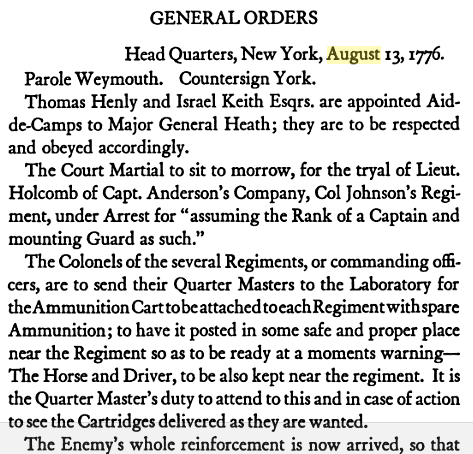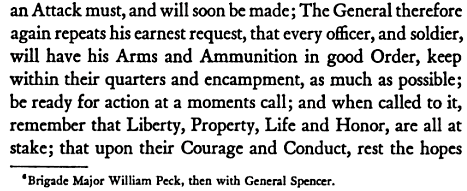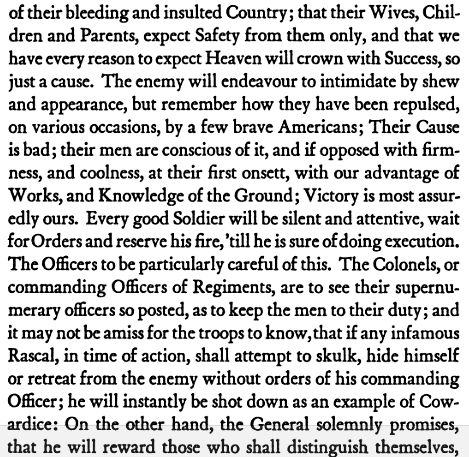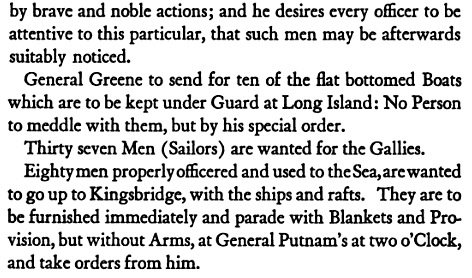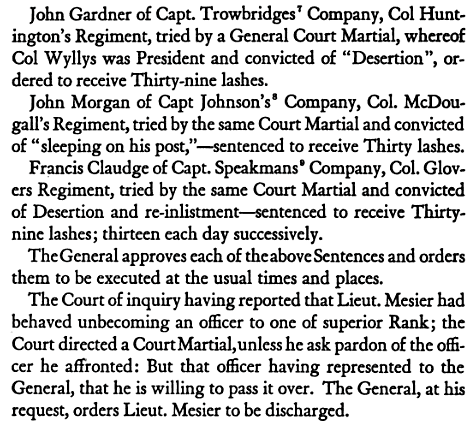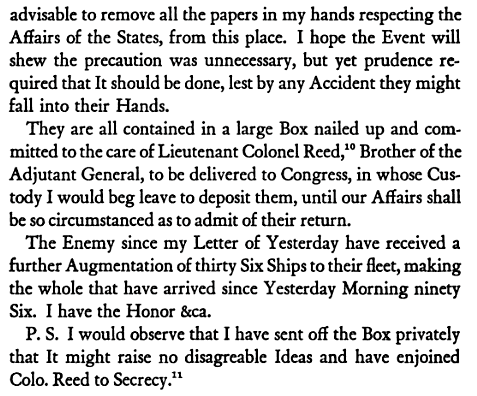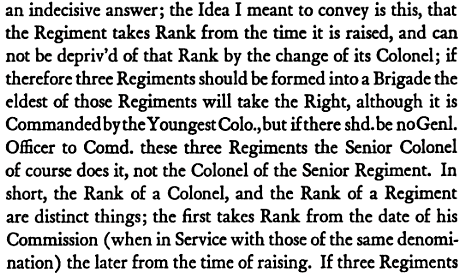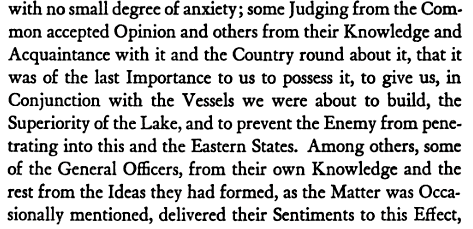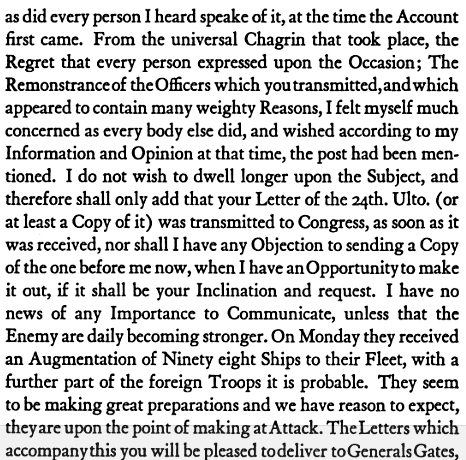J. Bradford DeLong's Blog, page 1163
August 15, 2014
Liveblogging World War I: August 15, 1914: Régiment de Sambre-et-Meuse
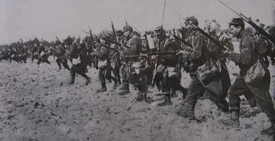 Régiment de Sambre-et-Meuse - Wikisource: https://www.youtube.com/watch?v=dvKVbvxKfdY&channel=TheMarches09
Régiment de Sambre-et-Meuse - Wikisource: https://www.youtube.com/watch?v=dvKVbvxKfdY&channel=TheMarches09
*Robert Planquette et Paul Cezano: *Le Régiment de Sambre-et-Meuse 1879
Tous ces fiers soldats de la Gaule
Allaient sans trêve et sans repos
Avec leur fusil sur l'épaule
Courage au cœur et sac au dos,
La gloire était leur nourriture.
Ils étaient sans pain, sans souliers,
La nuit ils couchaient sur la dure
Avec leur sac pour oreiller.
Refrain: Le régiment de Sambre-et-Meuse
Marchait toujours au cri de liberté
Cherchant la route glorieuse
Qui l'a conduit à l'immortalité.
Pour nous battre ils étaient cent mille.
A leur tête, ils avaient des rois!
Le général, vieillard débile,
Faiblit pour la première fois.
Voyant certaine la défaite,
Il réunit tous ses soldats
Puis il fit battre la retraite,
Mais eux ne l'écoutèrent pas!
Refrain
Le choc fut semblable à la foudre.
Ce fut un combat de géants.
Ivres de gloire, ivres de poudre,
Pour mourir ils serraient les rangs.
Le régiment par la mitraille
Était assailli de partout.
Pourtant la vivante muraille
Impassible restait debout.
Refrain
Le nombre eut raison du courage,
Un soldat restait : le dernier!
Il se défendit avec rage
Mais bientôt fut fait prisonnier.
En voyant ce héros farouche
L'ennemi pleura sur son sort!
Le héros prit une cartouche
Jura, puis se donna la mort!
Dernier refrain: Le régiment de Sambre et Meuse,
Reçu la mort au cri de "Liberté",
Mais son histoire glorieuse
Lui donne droit à l'immortalité.
August 14, 2014
Afternoon Must-Read: Josh Lehner: Squaring Fed Policy
Tim Duy sends us to Josh Lehner: Graph of the Week: Squaring Fed Policy "The following compares the Fed’s own forecasts...
...for nominal GDP (actually real GDP + PCE) on a 2 year ahead basis. Most forecasters, including the Fed, have performed relatively well on a 1 year ahead basis but keep calling for an improvement “next year” which has largely not materialized at the national level. Some states, such as Oregon, have seen acceleration in job growth but others have decelerated at the same time leaving U.S. growth at consistent rates...

Statement from Missouri Gov. Jay Nixon (D) and from the St. Louis Post-Dispatch: Live from La Farine CCCIX: August 14, 2014
 Missouri Gov. Jay Nixon (D): "Jefferson City, MO-- The worsening situation in Ferguson is deeply troubling...
Missouri Gov. Jay Nixon (D): "Jefferson City, MO-- The worsening situation in Ferguson is deeply troubling...
...and does not represent who we are as Missourians or as Americans. While we all respect the solemn responsibility of our law enforcement officers to protect the public, we must also safeguard the rights of Missourians to peaceably assemble and the rights of the press to report on matters of public concern.
I have been closely monitoring the situation and will continue to be in communication with local leaders, and I will be in north St. Louis County tomorrow. As Governor, I am committed to ensuring the pain of last weekend’s tragedy does not continue to be compounded by this ongoing crisis. Once again, I ask that members of the community demonstrate patience and calm while the investigation continues, and I urge law enforcement agencies to keep the peace and respect the rights of residents and the press during this difficult time.
Jay Nixon's focus seems off: a jaywalking stop is not supposed to turn into a person without any criminal record dead at the hands of the police with multiple gunshot wounds. The problem, it seems to me, is that the Ferguson police did not properly protect the public in the first place, and are now trying to evade accountability.
St. Louis Post-Dispatch: Editorial: Governor must let Ferguson be where better begins: "As soon as the unrest in Ferguson is over...
...and let it be soon — there must be a thorough, independent and timely investigation into how and why it happened and the police response to it. This inquiry would go beyond the parallel criminal investigations and get into the root causes of this madness.
Yes, the immediate cause — the “tipping point” they call it in the literature of civil unrest — was the fatal shooting Saturday of 18-year-old Michael Brown by a still-unidentified Ferguson police officer. (By the way, the failure to identify the officer violates every principle of transparency recommended by law enforcement experts. Society grants police officers the right to use deadly force. That right carries special obligations, one of which is strict public accountability. The longer the officer stays anonymous, the more public confidence is undermined.)
When the independent investigation deconstructs the Ferguson incident, as it must, it should explore the history and conditions that may have helped precipitate Saturday’s shooting and the subsequent public protests. That includes racial segregation. That includes the training and qualifications of Ferguson police officers. It includes command-and-control decisions by the Ferguson and St. Louis County police forces and the Missouri Highway Patrol.
One big problem with convening such an investigative panel is that it’s not clear who has jurisdiction. The same problem plagues the entire response in Ferguson: Who has command authority? Who is accountable for the decisions that are being made? The fragmentation may be deliberate; it certainly mirrors the fragmentation that is the bane of the entire region. But the first rule of restoring public confidence is to earn it. Someone must step forward and take responsibility — both for the law enforcement effort that’s currently underway and then for the investigation that must follow.
It will have to be Missouri Gov. Jay Nixon, a man whose every instinct is to dodge bad news whenever possible. Sorry, governor. But you asked for the job. By law, cities and counties are political subdivisions of the state. The state patrol already appears to be taking a lead role in crowd control efforts, though no one is saying so officially.
It can’t be the city of Ferguson. It is one of 90 municipalities in St. Louis County. It has 21,000 residents, two-thirds of whom are black, and a police force of 53 commissioned officers, 90 percent of whom are white. Nor can it be St. Louis County. The county has more than 800 police officers but no formal jurisdiction over law enforcement in Ferguson. At Ferguson’s request, the county police force is helping out through mutual aid agreements, as are the state patrol and other municipal police forces.
Mr. Nixon is the only public official with the authority to create an independent investigative commission. Public confidence demands that he announce plans to do so immediately. Its membership should be diverse and of unquestioned integrity. Its members should come from law enforcement, civil rights, academia and civic leadership. It’s time to step up.
The police agencies may know who’s in charge, but the public deserves to know, too. At whose order were police dogs brought in? Who authorized the use of tear gas and non-lethal baton rounds? What central command authority is making sure that officers from multiple jurisdictions are singing from the same hymnal? Is anyone up to speed on the latest thinking in law enforcement about dealing with mass protests? There is a lot of literature on that subject, dating back to the “police riot” at the 1968 Democratic convention in Chicago and forward to the 2011 London riots and “Occupy Wall Street” protests.
A “best practices” study published in the FBI Law Enforcement Bulletin two years ago says it’s generally accepted that “crowd violence escalates if people think police offers treat them unfairly.” Furthermore, the study says, when a crowd perceives that “officers act with justice and legitimacy,” disorder becomes less likely. Cops are human beings, and human beings get scared. Their first impulse is to gear-up as if they were patrolling outside Baghdad’s Assassin’s Gate. As in foreign policy, the academic types may say that dialogue and soft power are better, but that defies the average’s cop’s attitudes.
What the public generally regards as “riot gear” — helmets, shields, Kevlar vests — is known in police circles as “hard gear.” Here’s what the FBI bulletin says about that:
Officers must avoid donning their hard gear as a first step. They should remember the lessons learned from the 1960s civil rights movement and Vietnam War protests. Police should not rely solely on their equipment and tools.
What we’ve seen in Ferguson is skirmish lines of officers in hard gear and videos of tear gas canisters lobbed onto roofs. Individual officers generally have shown great restraint. But those images are doing incalculable harm, and not just to community relations in Ferguson. The nation and the world have seen horrible images from St. Louis that suggest that race relations here have a long way to go. They’re not wrong.
There are people of good will on all sides who want better. Ferguson should be the place where better begins. Mr. Nixon must get it started.
Liveblogging World War II: August 14, 1944: Operation Tractable
 Operation Tractable - Wikipedia:
Operation Tractable - Wikipedia:
Operation Tractable began at 12:00 on 14 August, when 800 Avro Lancaster and Handley Page Halifax heavy bombers struck German positions along the front. As with Totalize, many of the bombers mistakenly dropped their bombs short of their targets, causing 400 Polish and Canadian casualties. Covered by a smoke screen laid down by their artillery, two Canadian divisions moved forwards. Although their line of sight was reduced, German units still managed to inflict severe casualties on the Canadian 4th Armoured Division, which included its Armoured Brigade commander Brigadier Leslie Booth, as the division moved south toward Falaise. Throughout the day, continual attacks by the Canadian 4th and Polish 1st Armoured Divisions managed to force a crossing of the Laison River. Limited access to the crossing points over the Dives River allowed counterattacks by the German 102nd SS Heavy Panzer Battalion. The town of Potigny fell to Polish forces in the late afternoon.
By the end of the first day, elements of the Canadian 3rd and 4th Divisions had reached Point 159, directly north of Falaise, although they had been unable to break into the town. In order to bolster his offensive, Simonds ordered the Canadian 2nd Infantry Division to move toward the front, with the hope that this reinforcement would be sufficient to enable his divisions to capture the town.
Although the first day's progress was slower than expected, Operation Tractable resumed on 15 August; both armoured divisions pushed southeast toward Falaise. The Canadian 2nd and 3rd Infantry Divisions—with the support of the Canadian 2nd Armoured Brigade—continued their drive south towards the town.[15] After harsh fighting, the 4th Armoured Division captured Soulangy but the gains made were minimal as strong German resistance prevented a breakthrough to Trun.
On 16 August, the Canadian 2nd Infantry Division broke into Falaise, encountering minor opposition from Waffen-SS units and scattered pockets of German infantry.[13] Although it would take two more days to clear all resistance in the town, the first major objective of Operation Tractable had been achieved. Simonds began to reorganize the bulk of his armoured forces for a renewed push towards Trun to close the Falaise Pocket.
The drive for Trun by Polish and Canadian Armoured Divisions began on 16 August, with preliminary attacks in preparation for an assault against Trun and Chambois. On 17 August, both armoured divisions of the Canadian 1st Army advanced. By early afternoon, the Polish 1st Armoured Division had outflanked the 12th SS Panzer Division, enabling several Polish formations to both reach the 4th Armoured Division's objectives and significantly expand the bridgehead northwest of Trun. Stanisław Maczek—the Polish divisional commander—split his forces into three battlegroups each of an armoured regiment and an infantry battalion. One of these struck southwest, cutting off Trun and establishing itself on the high ground dominating the town and the Dives river valley, allowing for a powerful assault by the Canadian 4th Armoured Division on Trun. The town was liberated on the morning of 18 August.
As Canadian and Polish forces liberated Trun, Maczek's second armoured battlegroup manoeuvred southeast, capturing Champeaux and anchoring future attacks against Chambois across a 6-mile (9.7 km) front.[17] At its closest, the front was 4 miles (6.4 km) from forces of the U.S. V Corps in the town. By the evening of 18 August, all of Maczek's battlegroups had established themselves directly north of Chambois (one outside of the town, one near Vimoutiers and one at the foot of Hill 262).
August 13, 2014
Noted for Your Afternoon Procrastination for August 13, 2014
 Over at Equitable Growth--The Equitablog
Over at Equitable Growth--The Equitablog
Nick Bunker: The silver lining in the uneven housing recovery | Washington Center for Equitable Growth
Carter Price: Miscalculating the wealth of the rich reveals unintended biases | Washington Center for Equitable Growth
Carter Price: Are wealth and income inequality increasing? | Washington Center for Equitable Growth
Comment on: Ayako Saiki and Jon Frost: "How Does Unconventional Monetary Policy Affect Inequality? Evidence from Japan": Wednesday Focus for August 14, 2014 | Washington Center for Equitable Growth
Nighttime Must-Read: Paul Ryan (2011): The Path to Prosperity | Washington Center for Equitable Growth
Evening Must-Read: Tim Duy: Heading Into Jackson Hole | Washington Center for Equitable Growth
The Failure of Demand Management Policy since 2007...: Evening Comment | Washington Center for Equitable Growth
Morning Must-Read: Jeff Faux: The Neoliberal Mind at Work: Brad DeLong’s Muddled Defense of NAFTA | Washington Center for Equitable Growth
Yet Another Note on Mont Pelerin: Thinking Some More About Bob Solow's View... | Washington Center for Equitable Growth
Morning Must-Read: Margaret Sullivan: On Alexandra Alter, Craig Shirley, and Rick Perlstein | Washington Center for Equitable Growth
Plus:
Things to Read on the Afternoon of August 13, 2014 | Washington Center for Equitable Growth
Must- and Shall-Reads:
Margaret Sullivan: On Alexandra Alter, Craig Shirley, and Rick Perlstein: Was an Accusation of Plagiarism Really a Political Attack? "There’s a problem here. An article about polarized reaction to a high-profile book is, of course, fair game. But the attention given to the plagiarism accusation is not. Yes, the claim was 'out there' but so are smears of all kinds as well as claims that the earth is flat and that climate change is unfounded..... By taking it seriously, The Times conferred a legitimacy on the accusation.... And while it is true that Mr. Perlstein and his publisher were given plenty of opportunity to respond, that doesn’t help much.... The Times is saying: Here’s an accusation; here’s a denial; and, heck, we don’t really know.... Readers frequently complain to me about this he said, she said false equivalency — and for good reason. So I’m with the critics. The Times article amplified a damaging accusation of plagiarism without establishing its validity and doing so in a way that is transparent to the reader. The standard has to be higher."
Jeff Faux: The Neoliberal Mind at Work: Brad DeLong’s Muddled Defense of NAFTA The election of 1988... stolen by the U.S.-backed 'winner' Carlos Salinas, revealed widespread resistance among the Mexican electorate. Protecting the rights of foreign capital in an international treaty... was designed to put the neo-liberal regime beyond the reach of Mexican democracy. DeLong seems to know there was an ugly American politics to NAFTA. In an aside he says he now agrees that Mexico’s energies would have been better put to a development strategy. Unfortunately, it’s a little late. This was the reason Mexican progressives opposed NAFTA. When I raised it during the debate, NAFTA-backers responded that this was exactly the kind of 'statist' thinking they had to crush. During the congressional debate, Clinton’s U.S. Trade Representative blurted out to me that 'we have to keep the Left out of power down there'. While Cuauhtémoc Cardenas was trying to save Mexico’s capacity for self-development, DeLong was busy helping Rubin, Clinton, and the U.S. Business Roundtable do all they could to make it impossible. NAFTA was not some default 'second-best' policy; it was designed to kill the first-best..."
 Tim Duy: Heading into Jackson Hole: "The Kansas City Federal Reserve's annual Jackson Hole conference is next week.... A dovish path... the conference title itself--"Re-Evaluating Labor Market Dynamics"--points in that direction, as it emphasizes a topic that is near and dear to Yellen's heart.... Today we received the June JOLTS report... another gain in job openings, leading to further speculation that labor slack is quickly diminishing. Anecdotally, firms are squealing that they can't find qualified workers. Empirically, though, they aren't willing to raise wages.... A 'peculiar form of logic' indeed, but one that appears endemic to US employers nonetheless. Meanwhile, from Business Insider: 'Profit margins are still getting wider.... The nightmare scenario she wants to avoid is hiking rates only to see financial markets and the economy take such a hit that she has to backtrack. Until the Fed has gotten rates up from the current level near zero to more normal levels, it would have little room to respond if the economy threatened to head into another recession.' Gasp! Is the reality of the zero bound finally sinking in at the Fed?... The Fed needs to at least risk overshooting to pull interest rates into a zone that allows for normalized monetary policy during the next recession.... Yellen can point out that since the disinflation of the early 90's, the Fed has not faced an inflation problem, but instead has struggled with three recessions. This on the surface suggests that monetary policy has erred in being too tight on average.... Anything other than a dovish message coming from the Jackson Hole conference will be a surprise..."
Tim Duy: Heading into Jackson Hole: "The Kansas City Federal Reserve's annual Jackson Hole conference is next week.... A dovish path... the conference title itself--"Re-Evaluating Labor Market Dynamics"--points in that direction, as it emphasizes a topic that is near and dear to Yellen's heart.... Today we received the June JOLTS report... another gain in job openings, leading to further speculation that labor slack is quickly diminishing. Anecdotally, firms are squealing that they can't find qualified workers. Empirically, though, they aren't willing to raise wages.... A 'peculiar form of logic' indeed, but one that appears endemic to US employers nonetheless. Meanwhile, from Business Insider: 'Profit margins are still getting wider.... The nightmare scenario she wants to avoid is hiking rates only to see financial markets and the economy take such a hit that she has to backtrack. Until the Fed has gotten rates up from the current level near zero to more normal levels, it would have little room to respond if the economy threatened to head into another recession.' Gasp! Is the reality of the zero bound finally sinking in at the Fed?... The Fed needs to at least risk overshooting to pull interest rates into a zone that allows for normalized monetary policy during the next recession.... Yellen can point out that since the disinflation of the early 90's, the Fed has not faced an inflation problem, but instead has struggled with three recessions. This on the surface suggests that monetary policy has erred in being too tight on average.... Anything other than a dovish message coming from the Jackson Hole conference will be a surprise..."
Paul Ryan (2011): The Path to Prosperity: "Autopilot spending will soon crowd out all other priorities in the federal budget, with spending on Medicare, Medicaid, Social Security and interest on the national debt eclipsing all anticipated revenue by 2025. Borrowing and spending by the public sector will crowd out investment and growth in the private sector.... Americans face the most predictable economic crisis in this nation’s history. Absent reform, the panic ahead is no longer a question of if, but rather when. A deterioration of confidence by investors in government’s ability to pay its bills will drive interest rates up, increasing borrowing costs for government, small businesses and families alike. A vicious cycle of debt will compound upon itself; the available exit options once the crisis hits will be limited; and all will involve pain..."
Jessica Wolpaw Reyes: Lead Exposure and Behavior: Effects on Antisocial and Risky Behavior among Children and Adolescents: "It is well known that exposure to lead has numerous adverse effects on behavior and development. Using data on two cohorts of children from the NLSY, this paper investigates the effect of early childhood lead exposure on behavior problems from childhood through early adulthood. I find large negative consequences of early childhood lead exposure, in the form of an unfolding series of adverse behavioral outcomes: behavior problems as a child, pregnancy and aggression as a teen, and criminal behavior as a young adult. At the levels of lead that were the norm in United States until the late 1980s, estimated elasticities of these behaviors with respect to lead range between 0.1 and 1.0."
Mark Thoma: Why Do Macroeconomists Disagree? "The lack of a consensus within the profession on the economics of the Great Recession, one of the most significant economic events in recent memory, provides a window into the state of macroeconomics.... If you ask macroeconomists what caused the crisis... some will argue it was lack of regulation of the financial sector, others will cite the buildup up of household debt driven by stagnating middle class incomes. Still others will argue the Fed was at fault for holding interest rates too low for too long and fueling the housing bubble. You will also hear that it was a case of financial innovation gone awry.... Even stories that have been thoroughly debunked are still cited by some, for example the argument that it was all caused by government’s attempt to increase homeownership among lower income households.... Economists also disagree about why the crisis was so severe.... One group... argues that the crisis would have been just as bad even if the financial sector hadn’t had such severe problems.... And when it comes to explaining why the recovery has been so slow, there is also – surprise – little agreement.... Why can’t we agree?.... One reason is... the non-experimental nature of the data.... Even when the econometric models do give clear answers, those answers are often ignored in the public debate... due, in large part, to economists who are willing to ignore clear empirical evidence in order to sow confusion and promote ideological goals, and the culture within the profession that does little to penalize such behavior. If we don’t have the ability to settle debates decisively with empirical evidence, then each side will retain its beliefs and preconceptions.... We can’t stop the charlatans and cranks from speaking out, but we can do a much better job of labeling them as such when they do."
Brad Hershbein: More Education = Delayed Fertility = More Mobility? "One of our most striking findings is the recent and dramatic divergence in resources of children between more and less educated mothers.... Better-educated women have always given birth later than less-educated women, but this gap widened considerably for women born after World War II.... This growing gap means that the material resources available to children with better educated mothers would be greater than they used to be even if incomes were not rising faster for the college educated (which they are)..."
And:
Thoreau: "I think it is appropriate to judge a society or a state in part on how it treats its minorities.... The Kurds have apparently taken huge risks to rescue Yazidis trapped on a mountain.... If we absolutely must take a side in a Middle Eastern dispute, there are liberal arguments for siding with the Kurds of Iraq."
Sam Ro: Fed Vice Chair Fischer Has Made Very Clear Where He Sits on the Hawk-Dove Scale
Mike Konczal: Big Business's Frenemy in the White House
Robert Scott: Brad Delong’s Case for NAFTA: Based on Assumptions, Not on Data
Marc Lynch: Would arming Syria’s rebels have stopped the Islamic State?
Anat R. Admati et al.: Fallacies, Irrelevant Facts, and Myths in the Discussion of Capital Regulation: Why Bank Equity is Not Socially Expensive
Anat Admati et al.: The Parade of the Bankers’ New Clothes Continues: 28 Flawed Claims Debunked
Jason Zengerle: The New Racism: The Civil Rights Movement Is Going in Reverse in Alabama
Robert Cieri: Did Lower Testosterone Help Civilize Humanity?
And Over Here:
PLEASE CONTRIBUTE NOW!! Democrat Lianne Thompson (Clatsop County (OR) Commission Special Election) (Brad DeLong's Grasping Reality...)
Over at Equitable Growth: Comment on: Ayako Saiki and Jon Frost: "How Does Unconventional Monetary Policy Affect Inequality? Evidence from Japan" (Brad DeLong's Grasping Reality...)
Liveblogging the American Revolution: August 13, 1776: George Washington's Outgoing Correspondence (Brad DeLong's Grasping Reality...)
Milton Friedman, Friedrich Hayek, Augusto Pinochet, and Hu Jintao: Authoritarian Liberalism vs. Liberal Authoritarianism: Wednesday Hoisted from the Archives (Brad DeLong's Grasping Reality...)
Over at Equitable Growth: Yet Another Note on Mont Pelerin: Thinking Some More About Bob Solow's View... (Brad DeLong's Grasping Reality...)
Should Be Aware of:
Geoff Pender: McDaniel lists own lawyer as irregular vote: "As Chris McDaniel's team continues to scour voting records to add to an expected legal challenge of his loss to Thad Cochran, it has listed McDaniel's lead lawyer in the challenge, and his wife, as irregular votes that should be tossed out.... Tyner and his wife, Sloane Tyner, were flagged by a McDaniel volunteer as 'CROSSOVER/IRREGULAR VOTING' in one of the affidavits claiming problems with Madison County voting. The affidavit says that with Tyner and his wife's votes, records showed 'voted written in margin and on June 24'..."
David Glasner: Raghu Rajan Misunderstands (Totally!) Currency Devaluations: "Rajan is... totally clueless about the role of monetary policy and the art of central banking in combating depressions.... [His] notion that competitive currency devaluations in the Great Depression were a zero-sum game is fallacy, an influential fallacy to be sure, but a fallacy nonetheless... [and] a highly dangerous fallacy.... The classic refutation... was provided on numerous occasions by R. G. Hawtrey..."
Caitlin MacNeal: Huckabee Clarifies He 'Never' Said Obama Should Be Impeached: "Last week, he told Iowa radio host Steve Deace that Obama 'has done plenty of things worthy of impeachment.' But... Saturday, Huckabee said.... 'Let me be very clear. I never said he should be impeached. In fact I was explicitly clear. As often is the case, only half of what I said got quoted. I was asked the specific question: Had he committed impeachable offenses. And I said yes. But he's not going to be impeached, and he shouldn't be. Impeachment ought to be something that would be used in the rarest and most unusual of circumstances.'"
Ewen Callaway: Geneticists say popular book misrepresents research on human evolutiong "More than 130 leading population geneticists have condemned... A Troublesome Inheritance, by... Nicholas Wade.... 'It’s just a measure of how unified people are in their disdain for what was done with the field', says Michael Eisen... who helped to draft the letter.... 'This letter is driven by politics, not science', Wade said in a statement. 'I am confident that most of the signatories have not read my book and are responding to a slanted summary devised by the organizers'. Wade added that he had asked the letter’s authors... for a list of errors.... 'While Wade is obviously welcome to choose his quotes and observations, he consistently seems to ignore the caveats and cautions people lay out in their papers when they do not suit his ends', Coop says.... Sarah Tishkoff... says that the five clusters are somewhat arbitrary. In a 2009 study that included numerous African populations, her team found that 14 clusters (most of them composed of Africans) were a better explanation.... 'He’s claiming to be a spokesperson for the science and, no, he’s not', she says."
Over at Equitable Growth: Comment on: Ayako Saiki and Jon Frost: "How Does Unconventional Monetary Policy Affect Inequality? Evidence from Japan"
Over at Equitable Growth: Comment on: Ayako Saiki and Jon Frost: "How Does Unconventional Monetary Policy Affect Inequality? Evidence from Japan"
I want to make three big points: READ MOAR
Figuring out what we expect QE to mean for income and wealth inequality is difficult because we are not sure what QE is supposed to do for the macroeconomy. Is it a way of credibly committing to lower nominal interest and higher inflation rates in the long run by goosing the monetary base at the zero lower bound? Is it a way of reducing the supply of assets subject to risk and thus reducing the risk premium? If the first, it is the government imposing--relative to the baseline--a transfer from those who are going to save, who are going to cut their spending below their income and shift purchasing power into the further future, and to those who are going to borrow and to those who have saved in the past. If the second, it is the government imposing--relative to the baseline--a transfer from those who are going to supply risk-bearing services to those who will lay off risks into the future and those who have already committed to bearing risk in the past. In either case, it is bound to be the rich today who have born risk in the past (and been lucky) or who have saved in the past. So today's inequality should, we think, rise. It is nice to see that it is true--and it is interesting that the effects look to be so large...
Looking forward, however, QE seems to be a piece of what Keynes called the euthanasia of the rentier--or of the risk-bearer. Wealthholders who are going to stay influential wealthholders must reinvest at rate n+g, so their true free cash is only r-n-g. What if they spend more? Keynes thought that there was a social compact: if the rich do not accumulate--if they spend more than r-n-g--then the political process will soon take their wealth away. Thus a world of QE is a world in which the rich have extremely high wealth levels, yet surprisingly little weight, given their wealth, on consumption patterns. There is high wealth inequality. And there is very high income inequality along the transition path as asset prices attain their new equilibrium levels. But less spending inequality.
The Geithner view of the world: monetary policy is unreliable witchcraft, fiscal policy is "sugar" that makes you feel really good for four hours before you drop into a diabetic coma, the only source of durable prosperity is to reinforce business and financial prosperity by giving them the returns they think they deserve--and then a little more. I parody. But this is the dominant view in the North Atlantic, at least. Basically, the bankers and investors and CEOs have us by the plums. If QE reinforces business confidence, it is worth doing in spite of its inequality effects. If, on the other hand, QE scares our upper class by (a) making them fear that asset prices are unsustainably high and will crash, and (b) making them fear that their future deals will have to squeeze returns out of an eyedropper, then the inequality effects are yet another reason to exit as fast as possible. Now I am not a believer in Geithnerism. But many people are. And it is certainly a live analytical position...
Ferguson, Missouri: Live from La Farine CXXXVIII: August 13, 2014
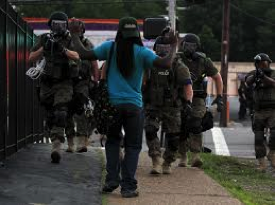 Ferguson, Missouri - Wikipedia: "As of the census of 2010...
Ferguson, Missouri - Wikipedia: "As of the census of 2010...
...there were 21,203 people, 8,192 households, and 5,500 families residing in the city. The population density was 3,425.4 inhabitants per square mile.... The racial makeup of the city was 29.3% White, 67.4% African American, 0.4% Native American, 0.5% Asian, 0.4% from other races, and 2.0% from two or more races. Hispanic or Latino of any race were 1.2% of the population...
How is it that a city that is two-thirds African-American has 50 white police officers out of 53?
AP: Ferguson Mayor Addresses Racial Tensions, Number of Black Officers in City: "Ferguson Police Chief Thomas Jackson...
...said 50 of the city’s 53 police officers are white. He said he made recruiting and promoting black officers a priority when he took over four years ago after a three-decade police career in St. Louis and St. Louis County. Jackson said he promoted two black officers to sergeant in his first year in Ferguson, though one of those officers has since left for a better-paying job. “I’m constantly trying to recruit African-Americans and other minorities,” he said. “But it’s an uphill battle. The minority makeup of this police department is not where I want it to be.”
The suburb of 21,000 has been on edge since Michael Brown, 18, and another teenager were confronted by an officer Saturday near Brown’s apartment. Police say one of the teens shoved the officer back into his car and a struggle ensued. Brown was struck by several bullets after emerging from the car. Eyewitnesses have said Brown was raising his hands in surrender and that the officer kept firing. Authorities had said they would release the officer’s name Tuesday but later decided not to, citing death threats against the officer....
The shooting sparked two nights of unrest. Looting broke out late Sunday at dozens of stores in Ferguson and neighboring communities. On Monday night, police used tear gas and fired “bean bag” rounds after a crowd turned rowdy, throwing rocks and bottles at officers. No serious injuries were reported....
The elected leadership of Ferguson — the mayor and five of the six city council members — are also white. Mayor James Knowles III said he’s having a hard time with the image of Ferguson as a racially divided, riot-torn place. “We’re all broken-hearted, regardless of our race,” Knowles said. “This is not representative of our community.”...
The mayor acknowledged the resentment. “The African-American community — youth in the African-American community in particular — has something against law enforcement in many ways,” Knowles said. “They don’t like law enforcement, and they don’t think law enforcement likes them”...
Milton Friedman, Friedrich Hayek, Augusto Pinochet, and Hu Jintao: Authoritarian Liberalism vs. Liberal Authoritarianism: Wednesday Hoisted from the Archives
Brad DeLong (2006): Milton Friedman, Friedrich Hayek, Augusto Pinochet, and Hu Jintao: Authoritarian Liberalism vs. Liberal Authoritarianism Jamie K. at Blood and Treasure writes:
Blood & Treasure: Hayekian dictatorship: Greg Grandin in Counterpunch sings of Friedman, Hayek, Pinochet, and someone closer to home:
Friedrich von Hayek, the Austrian émigré and University of Chicago professor whose 1944 Road to Serfdom dared to suggest that state planning would produce not "freedom and prosperity" but "bondage and misery," visited Pinochet's Chile a number of times. He was so impressed that he held a meeting of his famed Société Mont Pélérin there. He even recommended Chile to Thatcher as a model to complete her free-market revolution. The Prime Minister, at the nadir of Chile's 1982 financial collapse, agreed that Chile represented a "remarkable success" but believed that Britain's "democratic institutions and the need for a high degree of consent" make "some of the measures" taken by Pinochet "quite unacceptable."
Well, the left in Britain fought and lost in the 1980’s. But just think what might have happened if it hadn’t fought at all. Anyway:
Like Friedman, Hayek glimpsed in Pinochet the avatar of true freedom, who would rule as a dictator only for a "transitional period," only as long as needed to reverse decades of state regulation. "My personal preference," he told a Chilean interviewer, "leans toward a liberal dictatorship rather than toward a democratic government devoid of liberalism." In a letter to the London Times he defended the junta, reporting that he had "not been able to find a single person even in much maligned Chile who did not agree that personal freedom was much greater under Pinochet than it had been under Allende." Of course, the thousands executed and tens of thousands tortured by Pinochet's regime weren't talking.
Hayek's University of Chicago colleague Milton Friedman got the grief, but it was Hayek who served as the true inspiration for Chile's capitalist crusaders. It was Hayek who depicted Allende's regime as a way station between Chile's postwar welfare state and a hypothetical totalitarian future. Accordingly, the Junta justified its terror as needed not only to prevent Chile from turning into a Stalinist gulag but to sweep away fifty years of tariffs, subsidies, capital controls, labor legislation, and social welfare provisions -- a "half century of errors," according to finance minister Sergio De Castro, that was leading Chile down its own road to serfdom.
I think that there is an important difference between Friedman and Hayek. Hayek is an economic (classical) liberal but a social conservative: a believer in respect for throne and altar. Social conservative Hayek can see Pinochet as a good thing: far better to have an authoritarian state that maintains the conservative moral order, if it can be persuaded to adopt laissez-faire economics, than it is to have a democracy that regulates the economy. Friedman, by contrast, hates and fears a government that prohibits use of recreational drugs in your home almost as much as he hates and fears a government that won't let you undersell your politically-powerful competitors. For Friedman, Pinochet is a bad--an aggressive, powerful military dictator--whose evil the Chicago Boys can curb by persuading him to adopt laissez-faire policies. (And, Friedman would say, Pinochet is vastly better than that communist Allende--consider, Friedman would say, that Castro's regime in Cuba is the zenith of what Communist rule can accomplish.)
Jamie K. goes on:
Now, the position of many mainstream intellectuals and economists in China, especially during the mid to late 1990’s was summed up at the time as “liberty before participation”, ie “capitalism now, democracy sometime, maybe.” And there’s still a powerful school of thought in China to the effect that the advantage of CPC rule is that it enables China to establish a full market economy without the kind of “historic mistakes” like the welfare state or the New Deal that you get when the public is allowed to vote itself the keys to the bank. People who call themselves libertarians in China are likely to be strong supporters of the Communist Party, at least on instrumental grounds.
I’ve argued before that many of China’s anti subversion laws – like those against “causing turmoil” or “disturbing social order” - have a Hayekian feel to them. They’re essentially designed as measures to stop people exercising the conceit of reason. If Hayek’s preference was for a liberal dictatorship, China is still the country that best meets that description, despite the recent leftish turn in official policy.
August 12, 2014
PLEASE CONTRIBUTE NOW!! Democrat Lianne Thompson (Clatsop County (OR) Commission Special Election)
 Democrat Lianne Thompson won the election for Seat Five on the Clatsop County (OR) Commission last May. Her victory, however, was set aside due to ballot errors: a bunch of Oregonians eligible to vote did not get their ballots. So there is a special election in mid-September. It is against a much better-funded Republican, Dale Barrett.
Democrat Lianne Thompson won the election for Seat Five on the Clatsop County (OR) Commission last May. Her victory, however, was set aside due to ballot errors: a bunch of Oregonians eligible to vote did not get their ballots. So there is a special election in mid-September. It is against a much better-funded Republican, Dale Barrett.
And Michael DeLong--the 24-year-old--is her campaign manager, working 24/7 for the next 35 days...
It would be a political contribution well-spent. And they could really use it...
J. Bradford DeLong's Blog
- J. Bradford DeLong's profile
- 90 followers


